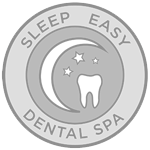
A restful night’s sleep is one of the most powerful tools for good health. It sharpens your focus, boosts your mood, and strengthens your immune system. But for many people struggling with insomnia, disrupted sleep cycles, or sleep disorders such as apnea, getting that rest isn’t so simple. Prescription sleep medicines can offer much-needed relief—but they aren’t without their drawbacks. If you’re exploring sleep medicine options, it’s important to understand the potential side effects. Being informed allows you to take a proactive role in your treatment, monitor how your body responds, and work with your doctor to make adjustments if needed.
In our previous blog, we discussed the seven key advantages of restorative treatment through sleep medicine. In this blog, we will address the six common side effects that sleep medicine can have on individuals.
6 Common Side Effects of Sleep Medicine in Youngstown
Not everyone will experience side effects, but certain reactions appear more frequently in patients. Here are six to watch for:
-
Daytime Drowsiness
Some medications may cause a “hangover effect,” leaving you feeling sluggish or unfocused well after you’ve woken up. This may cause problems with regular chores, driving, or employment. If you’re under the care of sleep apnea doctors in Niles, they may recommend adjusting your dosage or changing your medication timing to reduce lingering drowsiness.
-
Dizziness and Lightheadedness
By lowering blood pressure or affecting balance, some sleep aids can cause dizziness. This is particularly concerning for older adults, as it increases the risk of falls. Simple precautions, such as rising slowly from bed or sitting for a few moments before standing, can help minimize this effect and keep you steady.
-
Headaches
Headaches are a relatively common complaint, often caused by the way sleep medications alter brain chemical activity. While these may subside as your body adjusts, persistent or severe headaches should be reported to your doctor. In some cases, a different prescription or a dosage change may be the solution. Facilities like the sleep center in Hudson often offer medication reviews to ensure your treatment plan is both safe and effective.
-
Memory Issues
Certain sleep medications can cause short-term memory lapses, particularly those taken at higher doses or for extended periods. You might find yourself forgetting conversations, losing track of time, or not recalling events from the previous evening. You and your doctor can see trends and make well-informed adjustments by keeping a symptom record.
-
Digestive Problems
Your digestive system may need time to adapt to new medication, leading to symptoms such as nausea, constipation, or diarrhea. Taking the medication with a light snack—if approved by your healthcare provider—can sometimes ease discomfort. Drinking water regularly and incorporating fiber into your diet may also help. For patients working with an apnea specialist in Hubbard, digestive changes are often monitored closely to ensure overall treatment comfort.
-
Dependence or Withdrawal Symptoms
Extended use of certain sleep aids can lead to dependence, where your body struggles to initiate sleep without them. If you stop abruptly, you might experience rebound insomnia, irritability, or anxiety. Gradually reducing the dose under medical supervision is the safest way to avoid withdrawal effects.
Conclusion:
Sleep medicine in Youngstown can be an important step toward restoring healthy sleep patterns, but it’s essential to be aware of its possible side effects. Daytime drowsiness, dizziness, headaches, memory issues, digestive changes, and the risk of dependence are all potential concerns to watch for. By staying informed, spreading out your keyword research naturally across your content, and maintaining open communication with your healthcare provider, you can achieve better rest with greater safety. Call us now at (330) 759-4550!









